Shared Content Block:
Surgery Styles -- directory
Research Opportunities
In addition to the five years of clinical general surgery training, categorical residents are expected to spend two to three years as a resident in research/academics. Most spend two years in research or academics. Opportunities for clinical as well as basic-science research abound. Several of our residents have completed master's degrees during the two research years. Occasionally residents spend three years in order to satisfy the requirements for a Ph.D.
Residents are also encouraged to participate in various clinical research projects in collaboration with the faculty. Diverse research opportunities are available to individuals seeking careers in academic surgery. Most surgical residents spend a two-year research fellowship working with established surgical faculty investigators. Those entering the program with a Ph.D. are given the opportunity to set up an individualized curriculum. Residents pursue research spanning the full range of investigation from basic science to translational investigations, and clinical and outcomes-based research.

Sample Projects by 2024-25 Research Residents
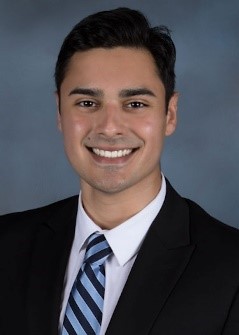
Zain Aryanpour
I work with Dr. Katie Egan and Dr. David Mathes in the Division of Plastic and Reconstructive Surgery. Our lab focuses predominantly on evaluating clinical outcomes in breast and microvascular reconstruction, but also includes ongoing projects in the various subspecialties of plastic surgery including craniofacial, aesthetic surgery, and hand surgery. I also work with Dr. Christodoulos Kaoutzanis on various projects in gender-affirming surgery. Our work includes multi-center and prospective studies, educational and clinical projects aimed at improving patient-reported and surgical outcomes, and ongoing collaborations with breast surgical oncology to optimize outcomes in breast reconstruction.
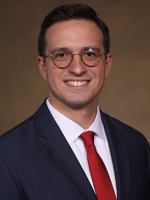
Ioannis Ziogas
I conduct basic science research in biliary atresia under the mentorship of Dr. Sarah Taylor, one of the pediatric hepatologists at Children’s Hospital Colorado (CHCO). Our research examines the impact of senescent cells on cholestatic liver disease severity and macrophage function in neonatal, weanling, and adult mice following bile duct ligation, using efferocytosis assays and single-cell RNA sequencing. I plan to translate these mechanistic studies to humans by defining the senescent cell signaling networks in liver tissues from children with cholestatic liver diseases using spatial transcriptomics. My research is partially funded by the Stimulating Access to Research in Residency (StARR) NIH R38 Award and I am also pursuing a PhD in Clinical Investigation through the University of Colorado.
Additionally, I work with Dr. Jonathan Roach and Dr. Kristine Corkum, pediatric surgeons at CHCO, and Dr. Megan Adams, pediatric transplant surgeon at CHCO, performing clinical outcomes research in pediatric surgical oncology and liver transplantation.
Sample Projects by 2023-24 Research Residents
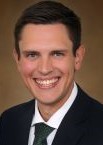
Jack Zakrzewski
I work with Dr. Matthew Stone, one of the congenital cardiac surgeons at Children’s Hospital Colorado (CHCO), in his basic science lab. Our research aims to reduce the effects of ischemia-reperfusion injury (IRI) on donor hearts, focusing on the impacts of ex vivo perfusion on graft function. We have developed a novel murine heart transplant model and associated ex vivo perfusion circuit that allows for functional analysis of the graft post-transplant. Specifically, I am investigating the role of the sphingosine-STAT3 pathway in IRI mitigation. My research is partially funded by the Stimulating Access to Research in Residency (StARR) R38 Award.
I also work with Dr. Jesse Davidson, one of the pediatric cardiologists at CHCO. He investigates the metabolic and physiologic effects of cardiac bypass and extracorporeal membrane oxygenation (ECMO) using a porcine model. We use techniques such as mass spectroscopy to study the effects of extracorporeal circulation on patient metabolomics.

Christina Stuart
I work with Dr. Robert Meguid and the Division of Cardiothoracic Surgery focusing mainly on thoracic outcomes with specific attention to lung and esophageal cancer. Most of my thoracic outcomes research is supported by an NIH T32 aimed at continuing to improve the surgical management of lung cancer patients thorough our Thoracic Enhanced Recovery After Surgery (ERAS) Protocol, however, I also focus on the implications of various social determinants of health, including the Social Vulnerability Index, and how this effects our lung and esophageal cancer patients.
Outside of thoracic outcomes, Dr. Meguid and I collaborate with a large team of analysts and machine learning specialists, both here and at Vanderbilt University, to develop deep learning techniques for automated surveillance of postoperative complications as well as preoperative surgical risk prediction tools. We’ve been able to apply this methodology to new ideas such as using artificial intelligence to optimize the extraction and incorporation of unstructured health data from the local electronic health record (EHR) to the National Cancer Database. This work has been generously funded by the Cancer League of Colorado. By piloting this implementation at our institution and validating it by comparing outcomes with prior NCDB studies, we intend to develop an enriched cancer database, operational by multiple institutions, to facilitate the use of real-world and unstructured health data for clinical advancements in oncology.
Sample Projects by 2021-22 Research Residents
.jpg?sfvrsn=48d568bb_2)
Syed Shahyan Bakhtiyar
I work with Dr. Peyman Benharash in the Cardiac Outcomes Research Laboratory (CORELAB) at the Division of Cardiac Surgery at UCLA. We are involved in a variety of projects ranging from surgical outcomes and resource utilization to biomedical engineering. I am specifically focused on analyzing adult heart transplantation outcomes in patient with congenital heart disease, increasing the donor organ pool, and using CAD simulations to evaluate the effectiveness of certain surgical techniques.
.jpg?sfvrsn=7c2969bb_2)
Michael Kirsch
I work with Dr. Marco Del Chiaro on cystic disease of the pancreas and its progression to cancer. I work closely with his team of international fellows. We perform clinical research while also working to develop consensus guidelines on the management of cystic disease of the pancreas.
I also work with Dr. Camille Stewart on the impact of cannabis use in liver cancer and melanoma patient outcomes. Cannabis has been legal recreationally in Colorado for almost a decade, but its influence on surgical outcomes is poorly understood.
Finally, I work with Dr. Yihan Lin on global surgical education. We have developed a low-cost surgical simulator that has been used in our own residency program, as well as in Kenya and Rwanda. We are designing a curriculum for essential surgical skills to be integrated in the orientation of new Rwandan interns to better standardize their learning.
.jpg?sfvrsn=522969bb_2)
Samuel Lai
I work with Dr. Chapman and Dr. Vogel on clinical research projects in the field of colorectal surgery. Most recently, we have started a national multicenter rectal surgery research collaborative with 40+ other centers around the United States. One of the initial projects is focused on practice patterns and outcomes in non-operative management of locally advanced rectal cancer in the United States. We are also conducting a randomized trial comparing 2 different TAP block formulations in postoperative pain control at UC Health, as well as participating in a national multicenter randomized trial on operative vs nonoperative management of left sided diverticulitis. Finally, we are working on a few other retrospective outcomes-based studies in colorectal patients as well.
.jpg?sfvrsn=4cd568bb_2)
Alyssa Vaughn
I work with Dr. Ken Liechty supported by the Laboratory for Fetal and Regenerative Biology. Our lab in conjunction with a group of collaborators developed a novel therapeutic consisting of a nanoparticle conjugated to a microRNA that we are now testing in different injury models including a lung injury model (ARDS), diabetic wound healing model, pressure ulcer injury model, and a colitis model. I am also working on various clinical outcomes projects in multiple areas including congenital diaphragmatic hernia, myelomeningocele, surgical necrotizing enterocolitis, and duodenal atresia.
Sample Projects by 2021-22 Research Residents
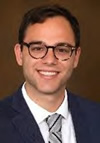
Dor Yoeli
I work with Dr. Chris Huang on various projects focused on transplant immunology and tolerance. We are testing novel therapeutic approaches to inducing tolerance and treating acute rejection in a pig kidney transplant model. We are also investigating novel treatments to mitigate ischemia-reperfusion injury in vascularized composite allograft transplantation in rodent models. We also have various projects focused on the role of galectin-3 in liver disease, transplantation, and coagulation, and are collaborating with Dr. Cara Mack to study galectin-3 in biliary atresia. I am also working with Dr. Megan Adams to conduct outcomes and mixed methods research in pediatric liver and kidney transplantation.
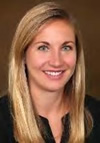
Helen Madsen
I work with Dr. Meguid on a multi-disciplinary team on health outcomes research. We are working on many large population level analyses using the NSQIP database. I have focused on the assessment of a patient's surgical risk in various ways, such as the impact of certain factors on mortality or the impact of obesity on surgical risk. We meet once a week with our team to discuss projects. We work closely with biostatisticians who perform our statistical analyses.
I work with Dr. Stewart on a prospective trial evaluating pain medication use in cannabis users. We will be enrolling patients in the trial in order to collect blood samples and quantify levels of cannabinoids, we will be comparing non-cannabis users and cannabis users to assess surgical outcomes as well as pain medication usage.
Current/Recent Residents by Lab
| Lab | Specialty | Current Resident / Lab Alumni |
|---|---|---|
| Shannon Acker, MD [email protected] | Pediatric Surgery | Catherine Dawson-Gore Emily Myers |
| Virginia Borges, MD [email protected] | Medical Oncology | Noy Kaufman |
| Jessica Cardenas, PhD [email protected] | GI, Trauma, Endocrine | |
| Akshay Chauhan MD, MCh [email protected] | Bariatric Surgery | |
| Rashik Choudhury, MD [email protected] | Transplantation | |
| Mitchell Cohen, MD [email protected] | Trauma | Lauren Gallagher Benjamin Ramser Benjamin Stocker Terry “TJ” Schaid William “Morgan” Hallas Otto Thielen Chris Sublette Teressa Duong |
| Marco Del Chiaro, MD [email protected] | Surgical Oncology | Michael Kirsch Jakob Durden |
| Sarkis Derderian, MD [email protected] | Pediatric Surgery | Lauren Gallagher Caitlin Eason |
| Jose Diaz Miron, MD [email protected] | Pediatric Surgery | Lavanya Easwaran |
| Katie Egan, MD [email protected] | Plastic Surgery | Zain Aryanpour |
| Cameron Gibson MD, FACS [email protected] | Burn | |
| Ana Gleisner MD, PhD [email protected] | Surgical Oncology | Madeline “Maddy” Thomas |
| Alexandra Halevi, MD [email protected] | Surgical Critical Care | |
| Christene Huang, PhD [email protected] | Transplantation Immunology | |
| Jonathan Hills-Dunlap MD, MPH [email protected] | Pediatric Surgery | Lavanya Easwaran |
| Juan-Pablo Idrovo, MD [email protected] | Trauma | |
| Eddie Jones, MD [email protected] | VA Quality Improvement | Danielle Abbitt Josh Bilello |
| Teresa Jones, MD [email protected] | VA Quality Improvement | Danielle Abbitt |
| Elizabeth Kovacs, PhD [email protected] | Burn, Alcohol Research | Thomas Vogler |
| Anna Malykhina, PhD [email protected] | Urology | |
| Robert Meguid MD, MPH, FACS [email protected] | CT Surgery | Christina Stuart Adam Dyas Micaella Zubkov |
| Benedetto Mungo, MD [email protected] | Surgical Oncology | Stefan Marasligiller |
| Mark Nehler, MD [email protected] | Vascular/CPC | Robert “Wilson” King |
| Phuong Nguyen, MD [email protected] | Plastics/Global Surgery | Ton Doan |
| Clay Quint MD, PhD [email protected] | Vascular | James Danahey |
| Christopher Raeburn, MD [email protected] | Endocrine | Martin Barrio |
| Brett Reece MD, MBA [email protected] | CT Surgery | Adam Carroll Brian Wu |
| Jessica Rove, MD [email protected] | CT outcomes | Jake Cotton |
| Thomas Schroeppel MD, PhD [email protected] | Trauma | Emily Johnson |
| Matthew Stone, MD [email protected] | Pediatric Cardiac Surgery | Jack Zakrzewski Nicolas Drysdale John Iguidbashian Jason “Jay” Breithaupt Benjamin Borg |
| Sarah Tevis, MD [email protected] | Breast/QI | Madeline Higgins Sudheer Vemuru Jakob Durden |
Richard Tobin, PhD | Surgical Oncology | |
| Catherine Velopulos, MD [email protected] | Healthcare Outcomes | Danielle Abbitt Madeline “Maddy” Thomas Denise Garofalo Alex Harrelson |
| Jon Vogel, MD [email protected] | Colorectal | Samuel Lai |
| Zhirui Wang, PhD [email protected] | Plastic Surgery | |
| Kia Washington MD, FACS [email protected] | Transplantation | |
| Arek Wiktor, MD [email protected] | Burn | |
| Alison Xie, PhD [email protected] | Urology | |
| Heiko Yang MD, PhD [email protected] | Transplantation | |
| Yuwen Zhu, PhD [email protected] | Surgical Oncology |
Local Educational Options During Research Years
Master of Public Health (MPH)
Colorado School of Public Health
Two- to three-year specialized public health graduate degree program including capstone project and studies within statistics, epidemiology, environmental health, policy, and behavioral sciences. Website
Contact: Admissions@[email protected] or 303-724-4613
Clinical Science Masters Degree (MSCS) and PhD
University of Colorado Denver
One- to three-year translational research graduate degree program including thesis and studies within statistics, clinical epidemiology, and health outcomes. Website
Contact: Lisa Cicutto (program director) / Galtin Mankin (program coordinator)
ECMO Fellowship
The University of Colorado has an ECMO fellowship, which is a non-ACGME accredited 2-year clinical and research fellowship encompassing all aspects of end-stage heart/ lung failure and mechanical circulatory support. The ideal candidate would be finishing PGY-2 or PGY-3 year of general surgery and looking for a 2-year research opportunity. The candidate will have a strong clinical background and an understanding of applied biostatistics and database management. They should also have a strong desire to matriculate into a cardiothoracic surgery fellowship with an emphasis on cardiopulmonary failure and transplantation.
For more information, please contact Jennifer Yang, [email protected].
Pediatric Surgical Critical Care Fellowship
The University of Colorado offers a one-year ACGME-accredited Pediatric Surgical Critical Care Fellowship. The Pediatric Surgical Critical Care fellowship prepares fellows to provide evidence-based critical care to pediatric and adult patients in various ICU settings, including Pediatric, Cardiovascular, Burn, and Surgical Intensive Care Units. Upon completion, fellows will be eligible for the Surgical Critical Care board examination and be equipped to lead critical care teams in diverse clinical environments. Candidates must have successfully completed their third year of an ACGME-accredited general surgery residency program.
For more information, please contact, Jaymie Donner, [email protected].